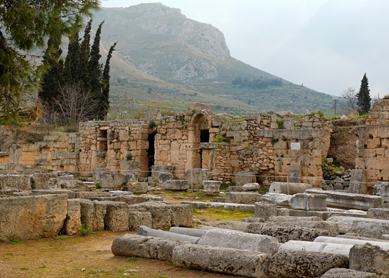Wedding ceremonies in the Western Hemisphere follow a fairly predictable pattern. The service usually begins with instrumental music followed by a processional, after which the couple joins hands, recites vows, exchanges rings, and engages in a celebratory kiss. Readings from the Bible are another common element of the wedding ceremony, and almost without fail one of the “go-to” passages is 1Cor 13. Known by many as “Paul’s Hymn to Love,” this passage is easily one of the most well known in the New Testament. This biblical text is cherished by so many that it is often used in nonreligious weddings by couples with no particular commitment to the Christian tradition.
In 1Cor 13, Paul describes what many intuitively regard as an ideal understanding of romantic love. After all, who would not want one’s spouse to be an endless reserve of patience, kindness, perseverance, and protection? Add to this idealistic thinking the eloquence of Paul’s description of love, and this text has all the makings of a wedding-day Scripture reading.
However, if we were to pause to read through the entire chapter, we would find that Paul introduces a few topics that seem quite out of keeping with the occasion of a wedding. For instance, what are we to make of Paul’s comment about being able to “speak in the tongues of mortals and of angels” (1Cor 13:1), or having “prophetic powers” and the ability to “understand all mysteries and all knowledge” (1Cor 13:2)? In the context of a wedding, these statements seem strange indeed. However, in the context of Paul’s relationship to the church at Corinth, these statements would likely have hit a nerve.
The Corinthian church has been described as Paul’s problem child for numerous reasons. The church was awash in controversy and interpersonal conflicts. Various factions had arisen in the community (1Cor 1:10-17, 1Cor 3:4-5, 1Cor 11:18-19); church members were embroiled in lawsuits against one another (1Cor 6:1-11) and were also abusing the Eucharist (1Cor 11:17-22). One man was even engaged in a very public affair with his stepmother (1Cor 5:1-2). Perhaps most troubling to Paul is that the church seems to have accepted a spirituality that led some to deny the resurrection (1Cor 15:12-19). Paul spends the majority of this first letter to the Corinthians addressing and attempting to correct these problems.
Another concern Paul addresses is the Corinthians’ misuse and abuse of their spiritual gifts (1Cor 12:1-11), and this is the immediate context in which he describes the nature of love. The Corinthians were reveling in their newfound spiritual gifts, and they had missed the point that one’s gifts are ultimately to be used for the edification of others. Chapter 12 ends with these words, “And I will show you a still more excellent way” (1Cor 12:31). From here, Paul begins his famous description of love—a gift greater than the ability to prophesy, fathom spiritual mysteries, and speak in other tongues.
An awareness of this background might cause some to think that 1Cor 13 is not appropriate for a wedding day, but this would be a mistake. If marriage is ideally a lifelong commitment in which both parties pledge themselves to one another, with the goal of loving the other person more than oneself, then the words of 1Cor 13—to be patient and kind, to persevere, to keep no record of wrongs, and to seek not one’s own benefit—provide a poignant “how-to” for a lasting marriage, and so remain the ideal reading for a wedding day.
Bibliography
- Ciampa, Roy E., and Brian S. Rosner. The First Letter to the Corinthians. Pillar New Testament Commentary. Grand Rapids, Mich.: Eerdmans, 2010.
- Hays, Richard B. First Corinthians. Interpretation: A Bible Commentary for Teaching and Preaching. Louisville, Ky.: Westminster John Knox, 2011.
- Matera, Frank J. New Testament Ethics: The Legacies of Jesus and Paul. Louisville, Ky.: Westminster John Knox, 1996, esp. chap. 6.





